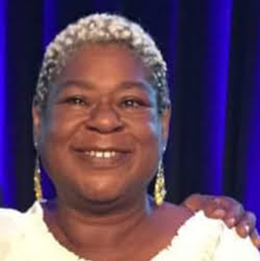Transcript
Vanessa:
Hello and welcome to another episode of visits with Vanessa, a podcast for dialysis patients and care partners to share their experiences with home dialysis. On today’s episode, we will be discussing the different treatment options available for home dialysis with the NxStage systems. We’ll be reviewing solo hemodialysis, which is done by yourself during waking hours, as well as nocturnal hemodialysis which is done while you sleep with a care partner. This episode applies to anyone living with kidney disease because as you know, it’s an ever-changing journey. So whether you’ve just been diagnosed with kidney disease or have been on dialysis for years, one of the most empowering things that you can do is learn all about your available therapy options. So thank you everyone for joining us today as we explore the HD possibilities. I’m a dialysis patient for over 23 years, I am also the senior manager of advocacy and communications for Fresenius Medical care. For the last 16 years I’ve been doing dialysis at home. Today I am thrilled, I am excited to introduce my friend and fellow Kidney Warrior, Dawn. Before I start, I do want to say that Dawn is a paid Advocate for NxStage. Dawn, thank you so much for being here with me today.
Dawn:
Thank you for having me Vanessa, I’m so excited.
Vanessa:
I’m so excited for you to be here and those people that know us, Dawn and I like to talk as a matter of fact, we had such great conversation earlier that we did make this into two podcasts, but they’re going to have to wait to hear our next podcast today it’s all about nocturnal and solo hemodialysis which you my friend take part in. So before we get in our conversation Dawn I would love for you if you can tell our listeners, can you introduce yourself? Tell us where you’re from, you know how you got started on dialysis and what is your current therapy?
Dawn:
Sure, hey everyone, my name is Dawn Edwards and I’m coming to you live from Brooklyn, NY. Whohoo, Brooklyn
Vanessa:
New York
Dawn:
And I’ve been a kidney patient for over 30 years. I’ve been a home hemodialysis patient for over 10 years, and I’m telling you it’s been quite a ride, but now currently I do nocturnal home hemodialysis.
Vanessa:
So that’s awesome. I know that you’ve had quite a ride like me and I’m really excited to kind of dig deep into that nocturnal process and solo as well. As we start our conversation Dawn, you know there are a lot of listeners out there that might not really know what is nocturnal dialysis. So what, that’s my first question to you. What is nocturnal dialysis? What does that mean?
Dawn:
Well, nocturnal dialysis is doing your dialysis treatment at a nice slow speed and you hook up to your machine and you do your treatments while you sleep and when you wake up in the morning your treatments over and you have the rest of your day to yourself.
Vanessa:
Which is awesome and I think one of the more important facts that we should also mention is in order to be able to do nocturnal dialysis, you do need a care partner, and we’re going to be talking about your care partner and who that is as well. So folks that are interested in nocturnal know that yes, it’s at night while you sleep with a care partner, right? That’s part of it. So when you started your journey with dialysis did you start originally just by doing nocturnal? Like is that where you began your journey?
Dawn:
Oh no, umm well, like I said I was diagnosed over 30 years ago. So I started in center and then I transitioned to PD, and then I had a kidney transplant and then come after my transplant failed then I went into HHD, which I did short treatments for a while and then I learned more about HHD and its benefits and I moved into longer treatments, and now I’m doing nocturnal, so you need different things at different times in your life, so I just kept moving with it to pick the best things that were right for me at that time.
Vanessa:
Yeah, I understand that and I actually think you’re bringing up a really good point that dialysis really does end up becoming a journey and it’s good to understand, and not good, it’s important to understand your treatment options, so a little bit on nocturnal so you know you went through different phases and you were doing different treatments. And then when you decided to do nocturnal dialysis and that was something that you wanted to do, was it originally offered at the clinic that you were at?
Dawn:
Actually, no, it wasn’t at my clinic we were just doing the shorter more frequent dialysis and I really liked the way that I was feeling. I had a lot of energy, I felt great. I got my sexy back. And I had a lot going on at the time and I wanted to feel better and I wanted to do more and I learned about nocturnal hemodialysis and about the better outcomes and patients feeling better so I had to advocate for myself in order for my facility to get nocturnal indications for me. And once I asked about it then they got me all the equipment I needed and I went back to training and I learned how to do nocturnal.
Vanessa:
So what you’re saying Dawn, is that it was a little bit of a process to get nocturnal, right? It wasn’t something that might have been offered originally, but with you talking to your care team and you know, getting some of that clinical data, it was something that you guys were able to work on together as a team in order to get that prescription.
Dawn:
Yes, definitely we worked on everything as a team. They had to get policy and procedures in place on the corporate side and then they had to get the accessories that I needed to add onto my machine so that I would feel safe while I was doing my treatment and then I had to go back to training for a little while to learn how to use those accessories properly.
Vanessa:
OK, I want to dig into two things you just said there right? You talked a little bit about training and you talked a little bit about some of these kind of ancillary accessories that you need. So let’s start with the first training of that, right? So when you talk about training, you had to do extra training for nocturnal dialysis?
Dawn:
Yes, you absolutely have to do the training because there are certain supplies that are added to your dialysis machine that you have to know how to use properly. For example, there’s a heparin pump that will administer heparin while your treatments going on. That’s added onto the machine so that you can get your heparin. There’s also something called Red Sense and that is an arterial blood leak detector that you have to put on over your arterial site in case you start to bleed or it will detect any moisture coming from your arterial site and then there are other ancillary supplies like a special holder for the dialyzer that keeps it secure during the course of the night and an alarm that goes underneath your machine just in case your dialyzer starts to drip or it detects any moisture during the day.
Vanessa:
OK, so there are a bunch of ancillary supplies it sounds like that you do use with nocturnal, you know I assume that that probably made you feel safer, right? because it is a bigger piece to be able to do nocturnal dialysis while you sleep, which is always good to have those ancillary supplies and then the training. How long did it take you to train to learn this stuff? Was it you know months os training? What did that look like? How long did it really take to learn the training for nocturnal dialysis?
Dawn:
Oh, it definitely didn’t take a long time for training. It only took a couple of days. I had to go back to the dialysis center, I got my treatment there and that’s when I was taught how to load the heparin pump and how to tape myself properly and put the blood leak detector on and you know, just to make sure that I knew how to use everything properly and what to do if it alarmed so it took a couple of days for the training, and then my nurse and I came home.
Vanessa:
Awesome, that’s great. Alright, let’s talk about your care partner now. Lot of patients might think, oh, you know this might be too much or I don’t have the right you know Care partner who is not a nurse or a tech so wondering who is your care partner? And what was it like for them?
Dawn:
well, you know.
Vanessa:
Or what is it like for them ’cause we’re current, right? This is not you’re doing it now. What is it like for them?
Dawn:
That’s very true. My care partner is my mother is 75 years old now and back when I started she was 65 and she learned how to how to do emergency procedures and she learned as much as she could, but it was really important for me to be as independent as possible. So she started out helping me because I needed that help. But as I started to feel better, I became more independent and was able to do more on my own. So anybody can be a care partner as long as you have somebody that’s in the house that knows the proper procedures in case of an emergency.
Vanessa:
That’s awesome, I love that your mom is your care partner, you know it’s really awesome. Another question about nocturnal dialysis. What does it look like in your home? Like where do you set up? What does that look like in your home with the machine?
Dawn:
That’s a great question, Vanessa. You know when I got my hemodialysis machine, I used to do my treatments in the spare room. But now that I’m doing nocturnal, I just moved my night table out and pushed my dialysis machine right in that space so it fits perfectly right next to my bed.
Vanessa:
And I’m wondering, does the machine at night bother you? Like how do you sleep with that?
Dawn:
Oh my goodness, you know, in the beginning I was a little ambivalent, you know about sleeping and it took me a couple of days to get used to it. But now I look forward to hooking up as soon as I hook up on the machine and it starts to hum, that’s like a lullaby for me, so I’m knocked out in a few minutes.
Vanessa:
You have your own personal sound machine.
Dawn:
I sure do yes.
Vanessa:
So I think a lot of listeners wonder, what does that schedule look like for nocturnal like when do you actually get on the machine? When do you get off the machine? Tell us about that.
Dawn:
Yeah, well, I’m a true nocturnal patient. I work during the day, I’m busy after work in the evenings so when I’m done with work and I wind down a little bit, that’s when I start to set up that maybe about 8:00 or 9:00 o’clock and then I usually get on it at midnight and I dialyze from midnight to about 6:30 or 7:00 in the morning and at when the machine is done then I disconnect myself and I roll right back over and I take a little nap until it’s time for me to get up for work.
Vanessa:
Nice, so it’s true advantage of your of your nighttime routine, dialyzing sleeping and then off you go the next day too, and I know you’re busy Dawn, but off you go doing your thing.
Dawn:
Yes, it really does fit in to my lifestyle and this has really proven to be the best option for me.
Vanessa:
That’s awesome. So Dawn, let’s transition for a minute. We talked a little bit about nocturnal dialysis you talked about you know doing it at night while you sleep. You’ve got your care partner, your mom who was trained and is there in case you should need her and all your ancillary supplies. But there is another option that patients can do with doing dialysis at home, obviously you can do the more frequent treatments, the shorter treatments talked a little bit about that, but there’s also solo independent dialysis. What do you know about solo independent? Have you ever heard about it?
Dawn:
Oh yes, I learn about everything as soon as it comes out because I want to make sure that I have as many options as I want to fit into my lifestyle. So actually I have a prescription for solo.
Vanessa:
Oh, really.
Dawn:
Solo dialysis is when you do your treatment during waking hours and no one you don’t do not have to have a care partner there with you. So once in a while, if my mom is out and I want to get my treatments done because I have something else to do, I can do my treatment solo and I don’t have to bug my mom or wait until someone gets home. Actually, I’m going to be going to Hawaii tomorrow and taking my machine along with me and I’m gonna be doing my treatments while I’m away, so I’ll be doing solo there too. But you have to get that prescription from your doctor and clear it with your care team and not do Solo alone.
Vanessa:
Yeah, and I think you know there are a lot of things here that that we’re talking about. So you know you and I are veteran patients, I would consider ourselves veteran patients. We’ve been doing this a real long time.
Dawn:
Oh yes.
Vanessa:
Um, right, and we’ve learned our options. We’ve mastered our options, we work with our health care team to be able to do you know whether it’s nocturnal, solo, more frequent treatments. Most patients, right, we’ll have one prescription that they do, but I think the message that we’re always looking to get out there is about patient empowerment and patient engagement and knowing your options, whether it’s solo dialysis or nocturnal dialysis is really important. You know what message do you want to give to patients about kind of knowing your options and that engagement piece?
Dawn:
Well, you know I just say that being an empowered, patient and knowing your treatment options is the best gift that you can give to yourself. You know you have to have open communication with your care team, ask about your options. Participate in what’s going on with your care plan and find out and talk to your team about your lifestyle so that you can make the best choices for you. Because we’re not all alike, we all have different things going on the course of our journey and never be afraid to change.
Vanessa:
Oh, I could not agree with you more. The piece about patient empowerment is so important. It’s wonderful for patients to understand that they have options. It’s important for patients to understand that their options. Today we discussed two of them. We discussed nocturnal dialysis and we also discussed solo. It’s important to note that if you are doing solo, you will also have the ancillary supplies, like Dawn noted earlier, with nocturnal which is the red sense monitor, the blood detector leak, the heparin pump and you might have other ancillary supplies that you would check with your health care team to see what is right for you.
Vanessa:
I was so fortunate to talk with you today, Dawn, I love having you on. Thank you so much for joining me.
Dawn:
Thank you so much for inviting me. This was a blast.
Vanessa:
It’s a blast. We’re going to do it again. We’re going to talk some more. There’s more to come. More Brooklyn in the house, right? Coming up.
Dawn:
Oh yes.
Vanessa:
Never enough time, never enough time, To our listeners, if you have questions and you would like to learn more about home hemodialysis with the NxStage systems, please call one of our patient consultants. They can be reached at 1-888-200-6456 or you can head over to the website at nxtstage.com/talk to a patient consultant, it’s important to note that our consultants are either current or former patients and care partners so they can help answer questions about home hemodialysis and Dawn, you will agree with me, there is nothing better than talking to peer to peer. Am I correct?
Dawn:
Oh yeah, absolutely right. It’s great to have someone that you can talk to that’s been there and done that.
Vanessa:
Been there, done that, and these are the people that can do that.
Vanessa:
It’s important to note that home hemodialysis with NxStage systems involves risks, you may not experience all the potential benefits with the therapy. NxStage systems require a prescription for use. If your doctor prescribes “solo/independent” home hemodialysis without a care partner during waking hours, your risks of significant injury or death increase because no one is present to help you respond to health emergencies. If your doctor prescribes “nocturnal” home hemodialysis at night while you sleep with a care partner, your risks increase due to the length of treatment time and delayed response when waking from sleep.
Vanessa:
With that Dawn thank you again for joining me. It’s been a pleasure to have you. Listeners, thank you for joining us on another episode of visits with Vanessa. We look forward to having you join our next podcast where Dawn and I will do a little chit chat again about dialysis and small spaces. Bye for now.
Dawn:
Bye.
Vanessa:
Bye.













